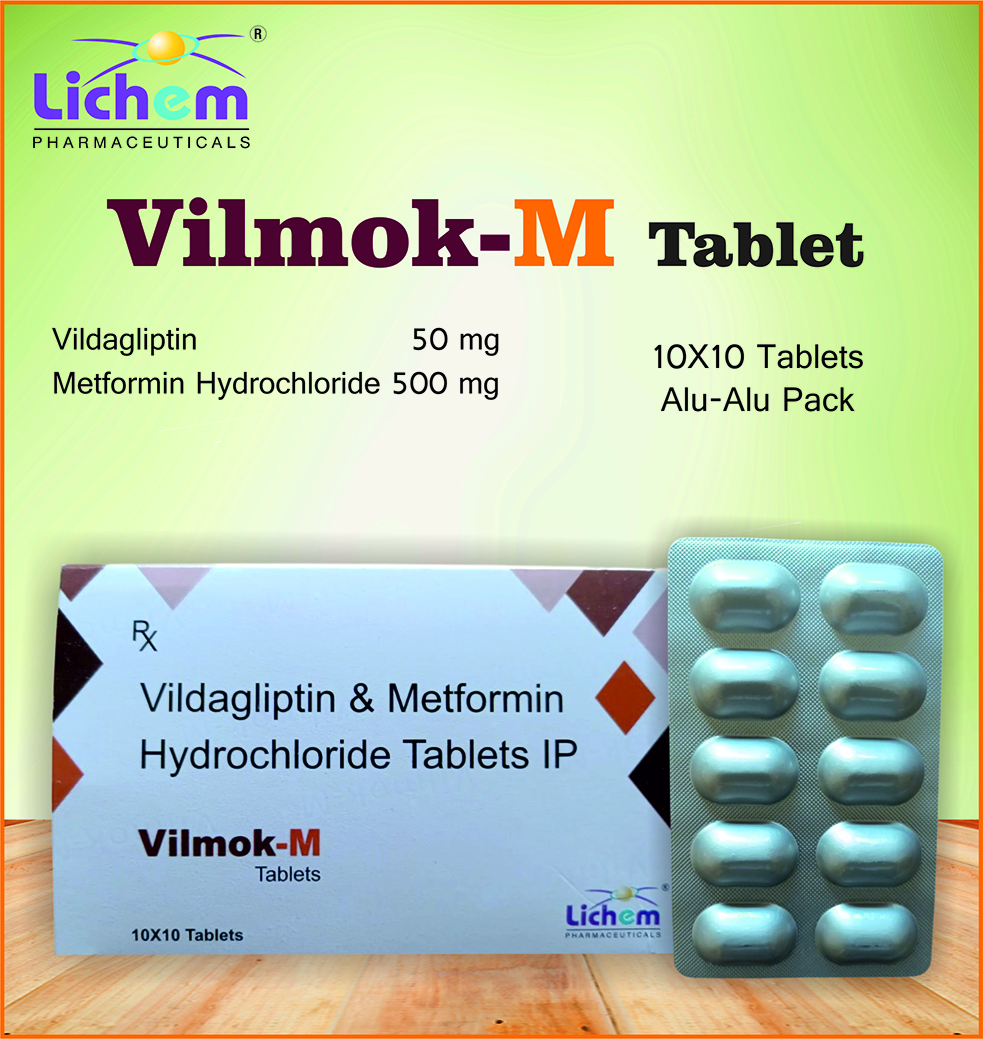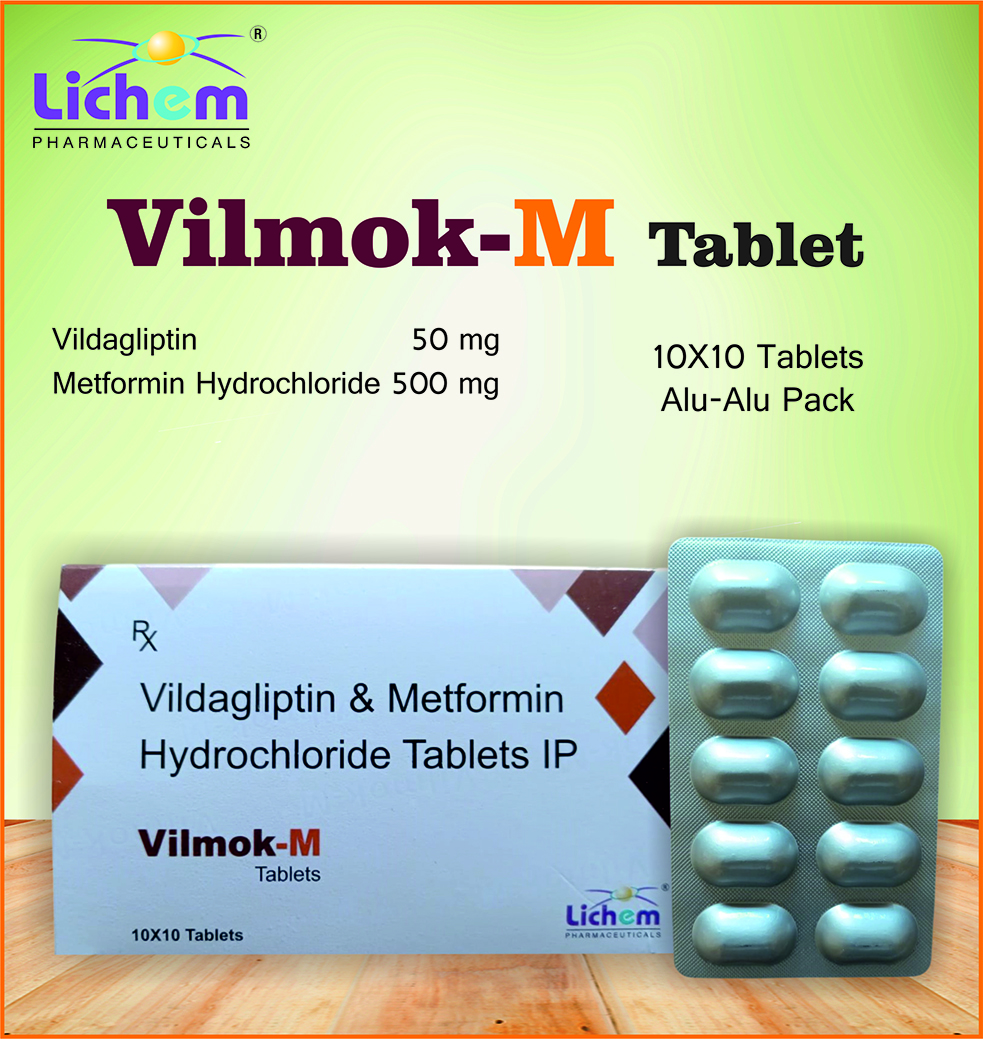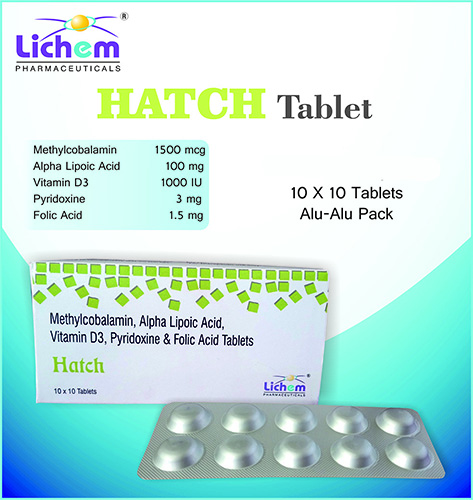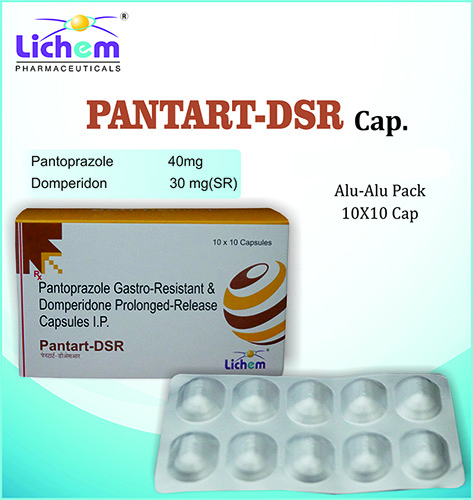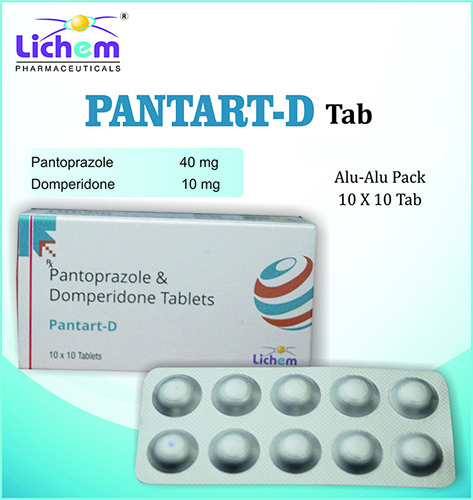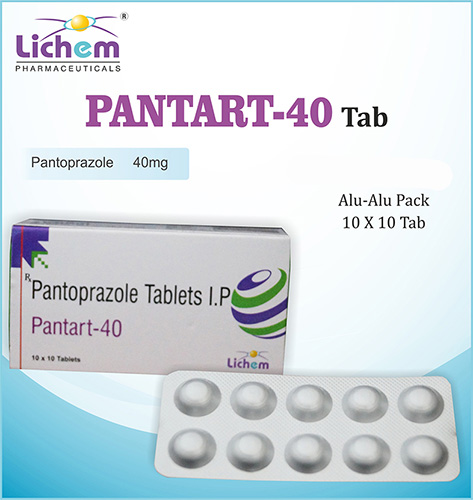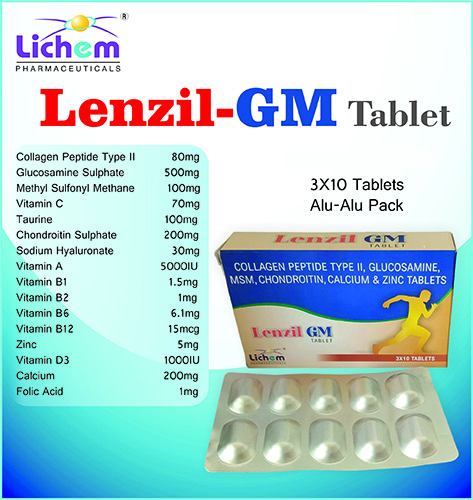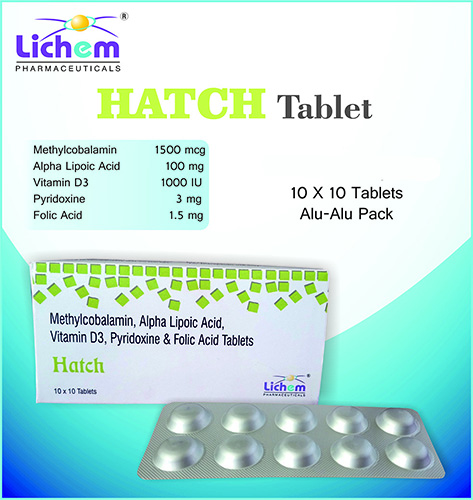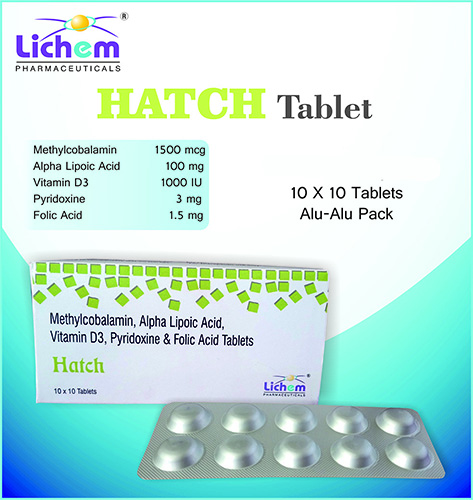Orthopaedic
Composition : Collagen Peptide Type II 80 mg + Glucosamine Sulphate 500 mg + Methyl Sulfonyl Methane 100 mg + Vitamin C 70 mg + Taurine 100 mg+ Chondroitin Sulphate 200 mg + Sodium Hyaluronate 30 mg + Vitamin A 5000 IU +Vitamin B1 1.5 mg + Vitamin B2 1 mg + + Vitamin
Collagen Peptide Type II: This specific type of collagen is a major component of cartilage, the tissue cushioning your joints. Supplementation might help stimulate cartilage production and reduce OA pain, although research results are somewhat mixed.
Glucosamine Sulphate: Another building block of cartilage, glucosamine sulfate might help regenerate cartilage and reduce OA pain. However, similar to collagen, evidence for its effectiveness is not conclusive.
Chondroitin Sulphate: A component of cartilage that attracts water, helping it maintain lubrication and elasticity. Studies on its effectiveness for OA show mixed results.
Sodium Hyaluronate: The sodium salt form of hyaluronic acid, a lubricant naturally found in joints. Supplementation might improve lubrication and reduce OA pain, but research is ongoing.
Methyl Sulfonyl Methane (MSM): A source of sulfur, which is important for joint health. MSM may have anti-inflammatory properties and reduce OA pain, but more research is needed.
Vitamin C: An antioxidant that may help protect cartilage from damage caused by free radicals.
Taurine: An amino acid with antioxidant properties that might also support joint health, although research is limited.
Vitamin A: Important for bone health, but high doses like 5000 IU can be toxic and require caution. Consult your doctor before taking this amount.
Vitamin B1 & Vitamin B2: Essential B vitamins that play a role in energy production and nerve function, but are not directly related to joint health at these dosages.
INDICATIONS
Osteoarthritis
Tendonitis
Sports Injuries
Musculoskeletal Pain
Chronic Pain
Send Message
